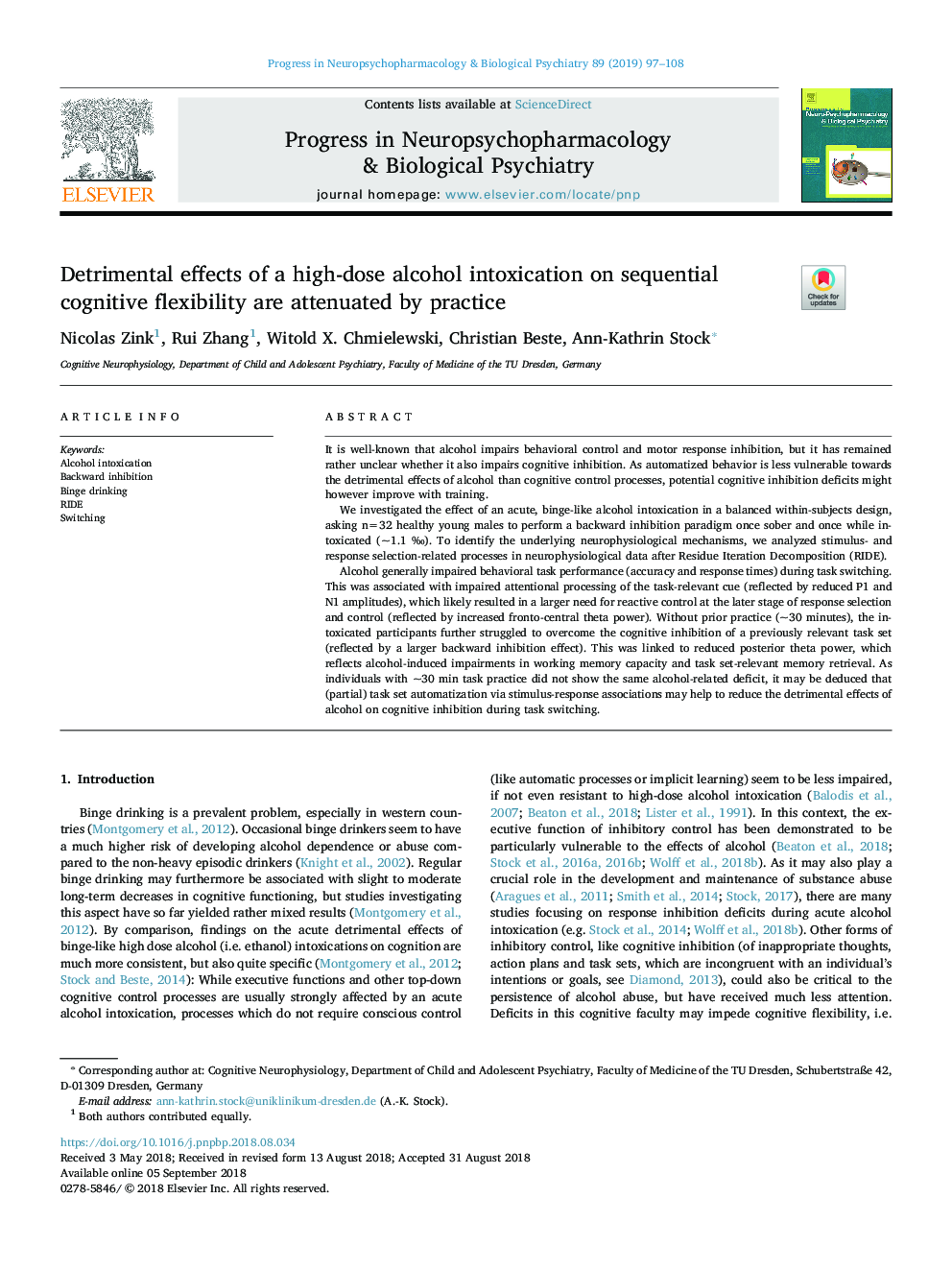| Article ID | Journal | Published Year | Pages | File Type |
|---|---|---|---|---|
| 10143357 | Progress in Neuro-Psychopharmacology and Biological Psychiatry | 2019 | 12 Pages |
Abstract
Alcohol generally impaired behavioral task performance (accuracy and response times) during task switching. This was associated with impaired attentional processing of the task-relevant cue (reflected by reduced P1 and N1 amplitudes), which likely resulted in a larger need for reactive control at the later stage of response selection and control (reflected by increased fronto-central theta power). Without prior practice (~30 minutes), the intoxicated participants further struggled to overcome the cognitive inhibition of a previously relevant task set (reflected by a larger backward inhibition effect). This was linked to reduced posterior theta power, which reflects alcohol-induced impairments in working memory capacity and task set-relevant memory retrieval. As individuals with ~30 min task practice did not show the same alcohol-related deficit, it may be deduced that (partial) task set automatization via stimulus-response associations may help to reduce the detrimental effects of alcohol on cognitive inhibition during task switching.
Related Topics
Life Sciences
Neuroscience
Biological Psychiatry
Authors
Nicolas Zink, Rui Zhang, Witold X. Chmielewski, Christian Beste, Ann-Kathrin Stock,
